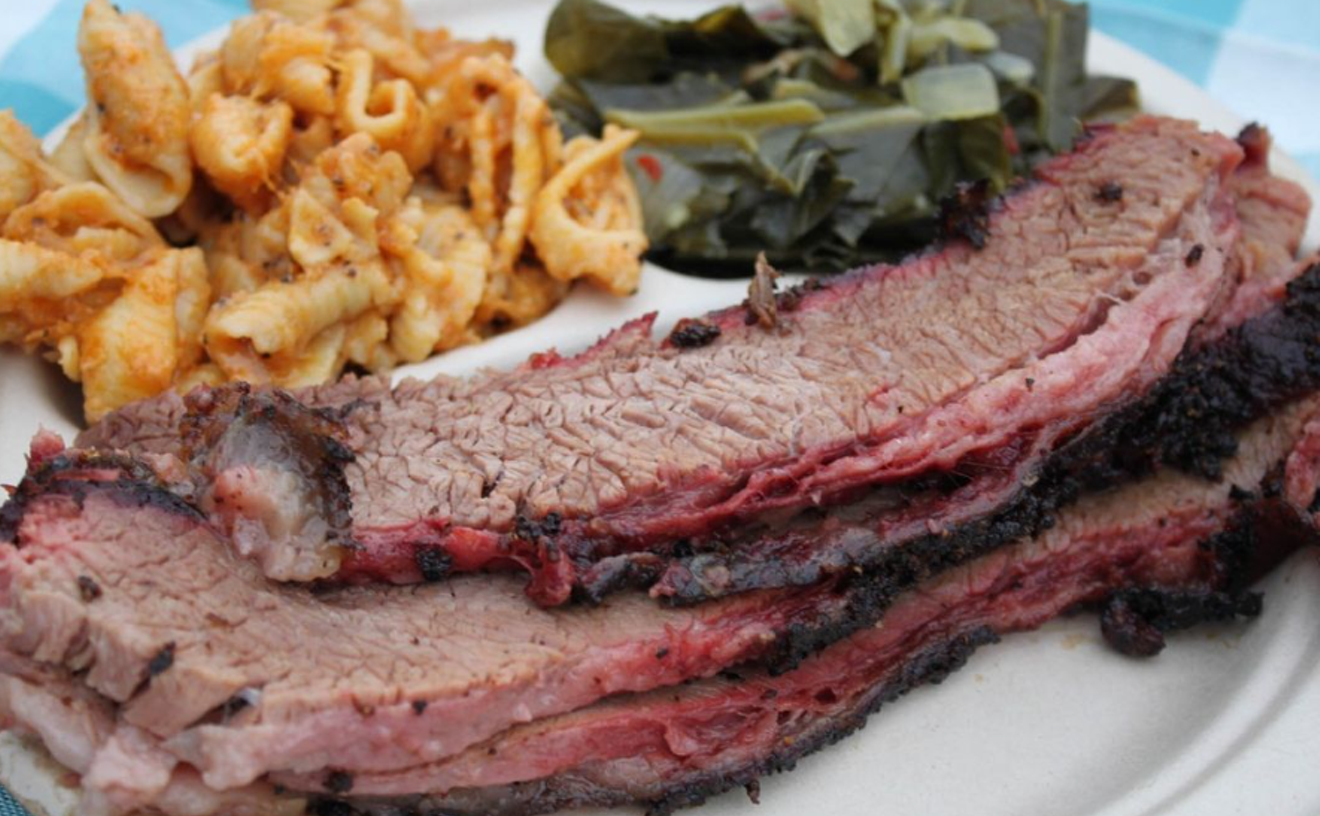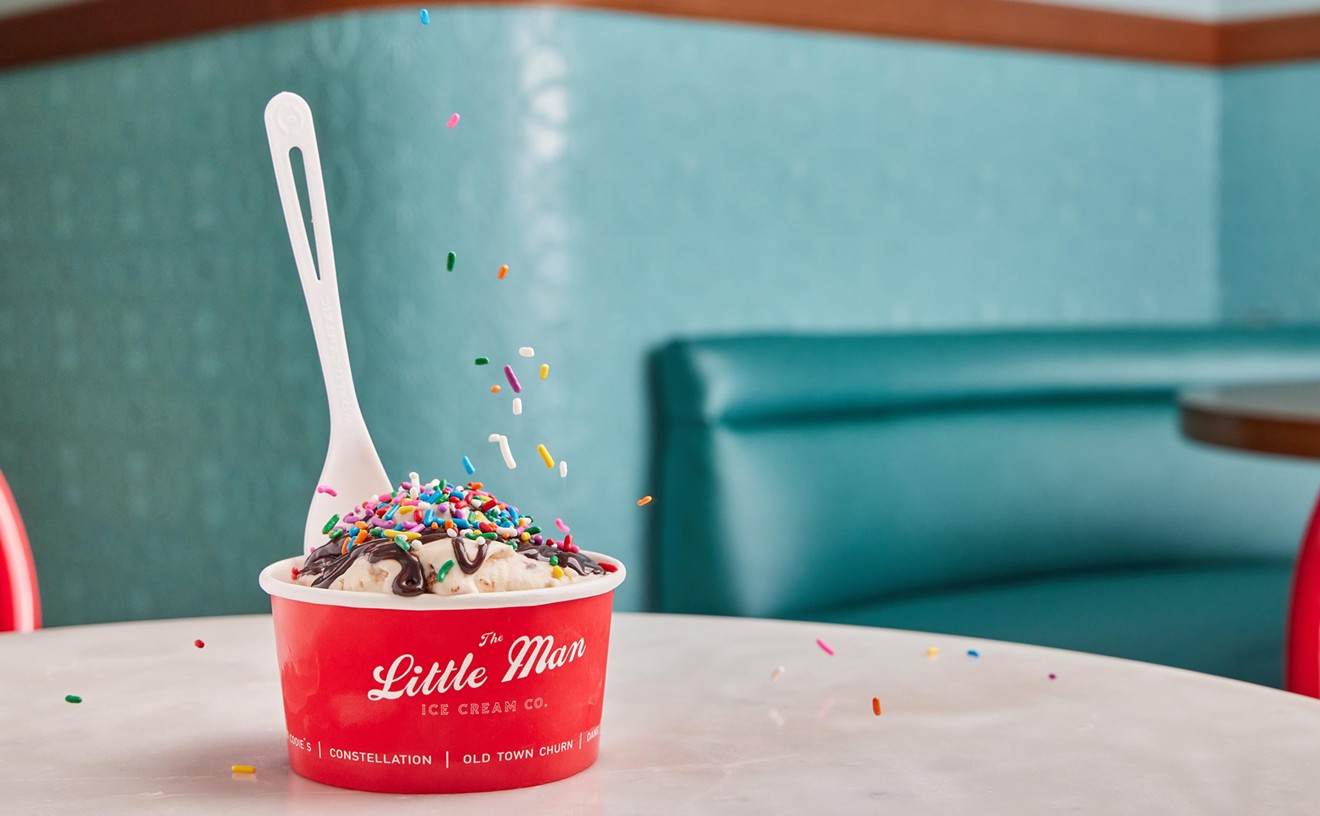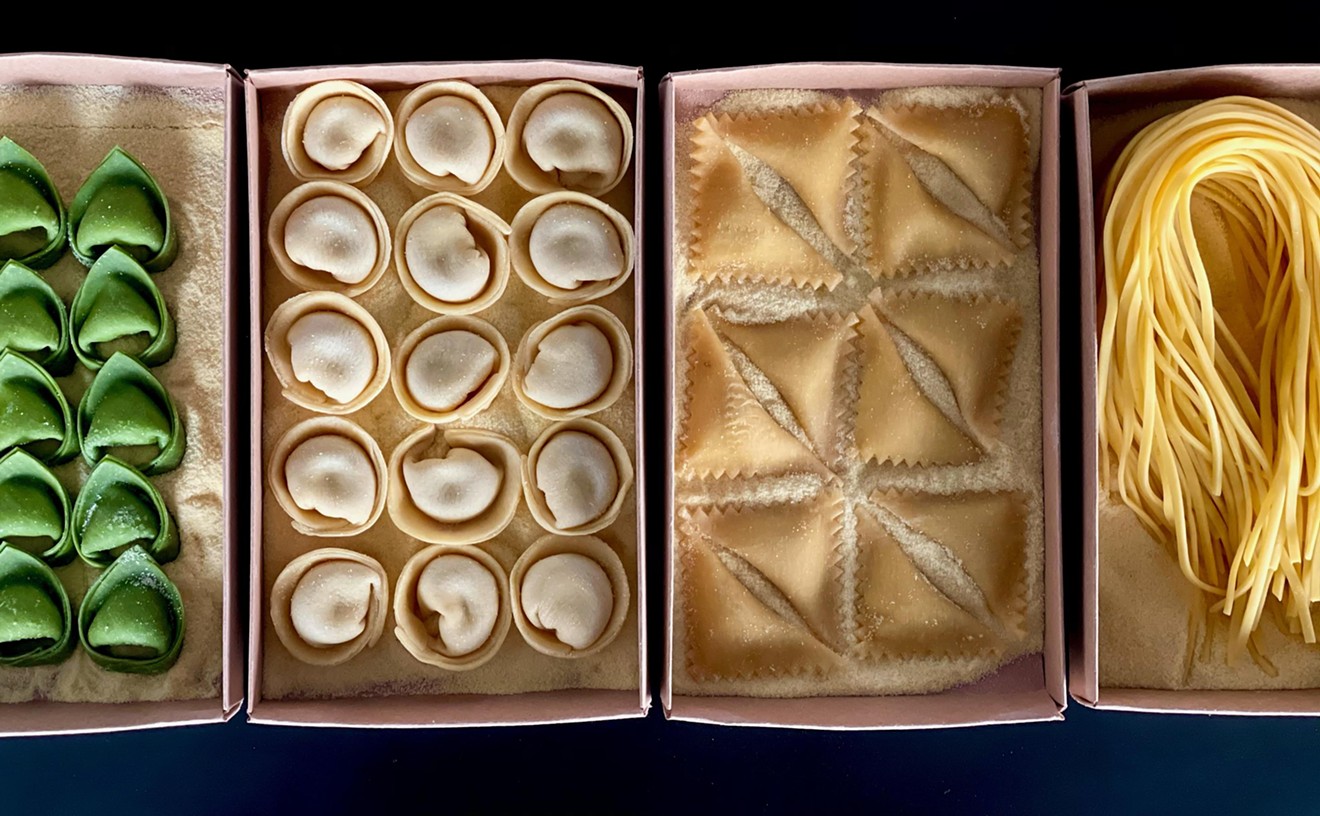See also: Chipotle raises prices, but only in Denver so far
Most diners, especially here in Denver, where it got its start, consider Chipotle the king of quick-casual. After all, with somewhere in the range of 1,600 stores worldwide, it seems easy enough to find one of the chain's foil-clad Mexican-ish torpedos anywhere in America without even having to ask Siri. But similar concepts are more ubiquitous. Panera boasts about 10 percent more locations than Chipotle; Quiznos tops them both; and Subway, with a customer experience very similar to that of Chipotle (order, point, shuffle, pay), has more than 25,000 corporate and franchised locations (according to QSR Magazine's 2012 tally).So what is it that customers are drawn to, especially in Colorado -- the undeniable incubating epicenter of fast-casual outlets? It could be just the price-to-quantity ratio. A typical Chipotle burrito can easily approach two pounds on the scale, and at $7 to $8 and probably a half-day's worth of calories, that seems like a pretty good bargain. Throw in the usual feel-good slogans like locally sourced (when it's available), hormone-free (when they can get it) and socially responsible (when advocacy groups shame them into it), and you've got a perfect storm of satisfying big American appetites and quelling modern suburban industrial-food guilt.
Other locally grown chains aren't far behind. A bowl of steak stroganoff from Noodles & Co. weighs in at 1,030 calories and 1,620 milligrams of sodium. A Smashburger classic with a side of french fries tips the scale at 1,250 calories, with about half of those calories coming from fat. Compare that to a Quarter Pounder with cheese and an order of fries from McDonald's at about 750 calories total, and it seems clear that quantity is as important as perceived quality (back to those humanely slaughtered cows and lovingly nurtured spuds).
So we love our super-sized food and are willing to shell out just shy of a ten-spot for the satisfaction of a forearm-sized meal and the smug satisfaction of knowing we're not eating pink slime or Roundup-seasoned veggies. We can almost pretend it's healthy. And when we're not basking in the marketing glow, we seem pretty content, as at the crazy-popular Modmarket, to stand in long lines, jockey for tables, spring to the counter when our number is called for another round of jostling, and clean up after ourselves, all for a big salad that's just about as good as something you could assemble yourself at home for less than half the price. But with a new generation of quick-casual Denver spots setting up shop faster than a burrito jockey's wrapping skills, the reasons for their popularity here could soon shift. Troy Guard's new Bubu bowl concept offers lighter ingredients (there's not a single shred of cheese on the menu) and healthy options (even the chocolate chip cookies get a dose of chia and hemp seeds), while Chop Shop, located on a restaurant-starved section of East Colfax, promises chef-driven food oriented more toward dinner than lunch but without the usual inconveniences of full-service dining. And trendy RiNo is home to Cart-Driver, a counter-service pizza-and-oyster joint that fashions itself after Auto-Grill, the Italian chain of roadside stops.Are any of these set up to deal with the crush of popularity that makes fast-casual such an enticing endeavor for restaurateurs? Cart-Driver is currently only open for dinner, thus avoiding the dangers of the lunch crush, but its tiny dining room might not be able to accommodate a mass of hungry hipsters descending all at once from overflows at other fashionable nearby eateries. Similarly, Chop Shop's food takes a little longer to serve (although chef Clint Wangsnes estimates average wait times of about ten minutes) and the upscale menu of slow-cooked meats and rich sauces might slow guests, who may need more time to consider more expensive options (topping out at $20 for short ribs) at the cash register. Bubu's kitchen, while able to turn out bowls in three minutes or so, is not equipped for heavy-duty cooking; meats are grilled in sister-restaurant TAG's kitchen and toted to Bubu for service. A busy lunch could mean chaos as the staff scrambles to replenish steak or chicken.
The good news is that the chefs behinds these operations are no rookies. Guard maintains a growing armada of well-received restaurants, while Wangsnes and Cart-Driver's Kelly Whitaker have put in years in the kitchens of Zengo and Pizzeria Basta, respectively. Good food at a good value are only part of the equation for success. The ability to handle success by scaling up while maintaining quality and consistency is also critical. If we fast-casual fanatics can get past the allure of corporate sloganeering and monster servings, we'll certainly give each of these new places the fullest chance to test the soundness of its ideas.
Follow @CafeWestword











